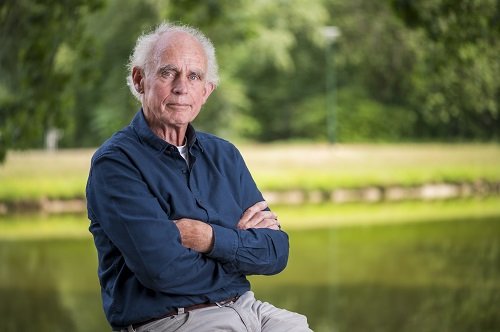'Treat people with dementia as an equal'
Luc Harms experienced dementia up close. As a family physician, he had patients with dementia in practice, and in June a brother of his died after four years of dementia.

Dementia is not new; the disease has been around for a long time. We used to call it arteriosclerosis. According to retired family physician Luc Harms, dementia is a growing problem. 'First: the number of elderly people is increasing - and with it the number of people with dementia. Second: in the past, elderly people with care needs were often cared for by their children. This is happening less and less. Furthermore, there is a huge shortage of care staff and the costs involved in dementia are very high.'
Informal caregiver: crucial
An informal caregiver is invaluable to someone with dementia, Harms believes. With dementia we quickly think of day care, nursing home and medication. But for someone with dementia, the longer they live at home, the better. You can also get support there. The care pathway supervisors know the so-called care landscape inside out. They know what Health is available and whether you are entitled to it.
Don't patronize but talk
The way we deal with people with dementia could be better, Harms believes. 'People with dementia are quite often patronized, making the person in question feel excluded, lonely and rebellious.' So how should it be done? 'Talk to the person with dementia on an equal footing. For example, ask what he or she is still interested in and connect with that. For example, my brother built model ships as a child. He picked up that hobby again when he became demented. He still enjoyed it a lot.'
People with dementia live an average of six and a half years from the time they are diagnosed, Harms said. 'Eventually, death follows. My advice: record in a living will what the wishes of the person with dementia are, for example with regard to resuscitation, medication to relieve any suffering and euthanasia. Arrange that in time and discuss that declaration with the family physician.'
He also has another tip. 'Anyone who is becoming more forgetful and wonders if it is a preliminary stage of dementia: on the site of Alzheimer Nederland there is a memory test. That immediately shows how your memory is doing.'
In the next installment, Pastor Hans Vossenaar of Saint Clemens Church talks about how he supports people with dementia.